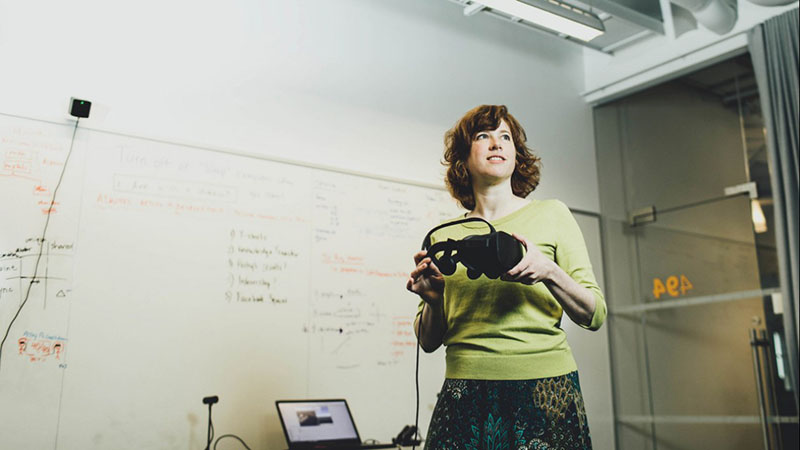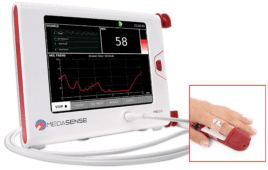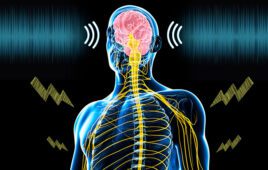An assistant professor at Cornell is studying how virtual reality (VR) can help treat real-life chronic pain at the Virtual Embodiment Lab. VR has given hope to patients who suffer with physical pain and mental stress, and offers a way to provide relief.
Andrea Stevenson Won, assistant professor in the Department of Communication and director of the Virtual Embodiment Lab, said there are many different applications for VR. Sometimes, VR can be designed to cure the problem, while other times it may offer a distraction. For instance, VR used in acute pain, like burn wound cleaning, would help in the moment. But for those suffering from trauma, it can help address trigger situations and provide a support system to alleviate the stress.
“I’m always impressed with how excited people are by virtual reality,” said Won. “This seems to make boring tasks, like moving a painful limb to hit a target, more fun and engaging, especially for kids.”
Won’s research on chronic pain has honed on two types of conditions. The first is complex regional pain syndrome (CRPS), an uncommon type of chronic pain that develops after an injury, surgery or stroke, but is out of proportion to the severity of the initial injury. The other type is called persistent idiopathic facial pain, which is similar but occurs in the face.
With the use of VR, patients can envision themselves moving in ways they cannot in real life, and their brains use this feedback to reconstruct their body image. By tricking the brain with what Won calls “bogus” visual feedback, VR can actually change the way people with chronic pain move. This could result in lasting relief in the real world, not just the VR world.
Today, hospitals are using VR, and Won said one of the most exciting areas of research is how VR can be integrated into homes since it is less expensive. Ultimately, Won hopes her virtual environment will inspire other institutions to use VR research for their own patients.
Additionally, her students are studying the effects of virtual environments on emotional regulation.
“For better or worse, our experiences change us,” said Won, according to Cornell University. “As VR becomes a more common experience, there are more opportunities to use the technology to benefit our health.”

Andrea Stevenson Won, assistant professor in the Department of Communication, in the Virtual Embodiment Lab. Credit: Sasha Israel




